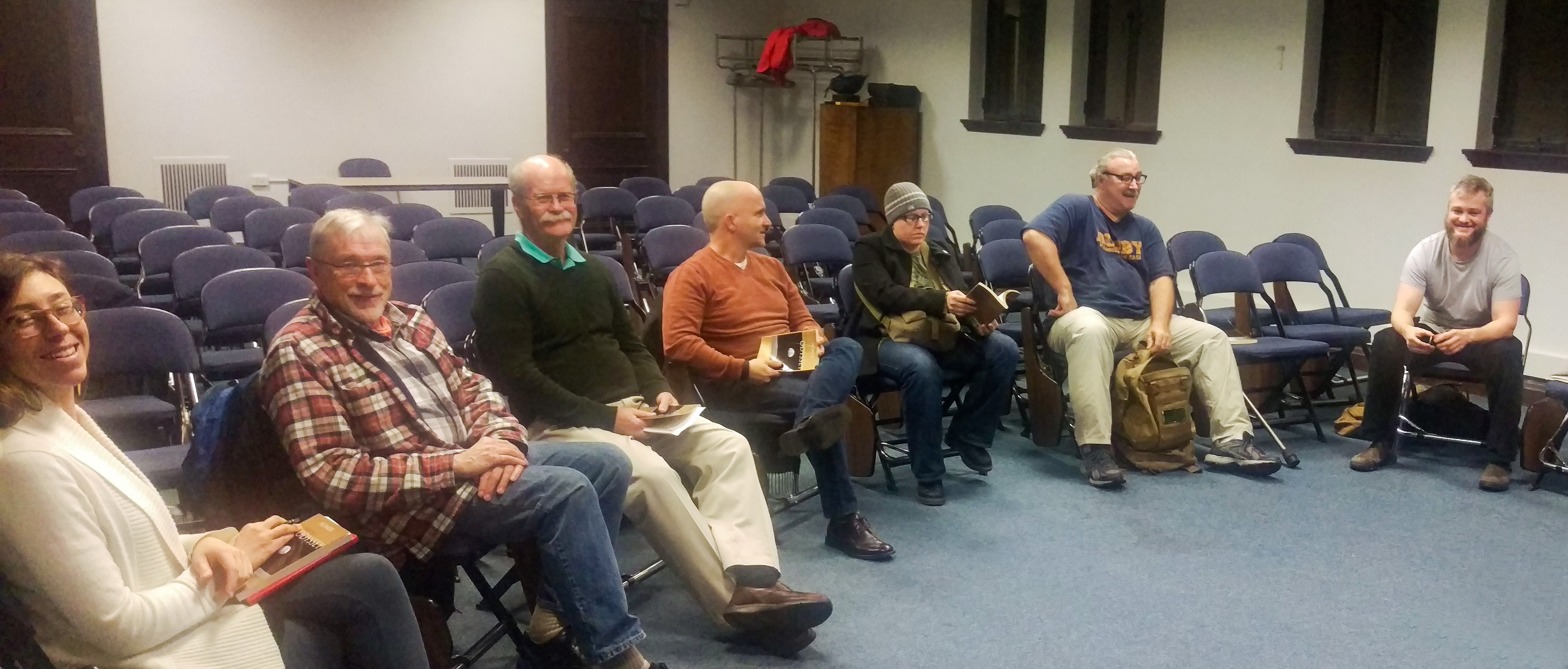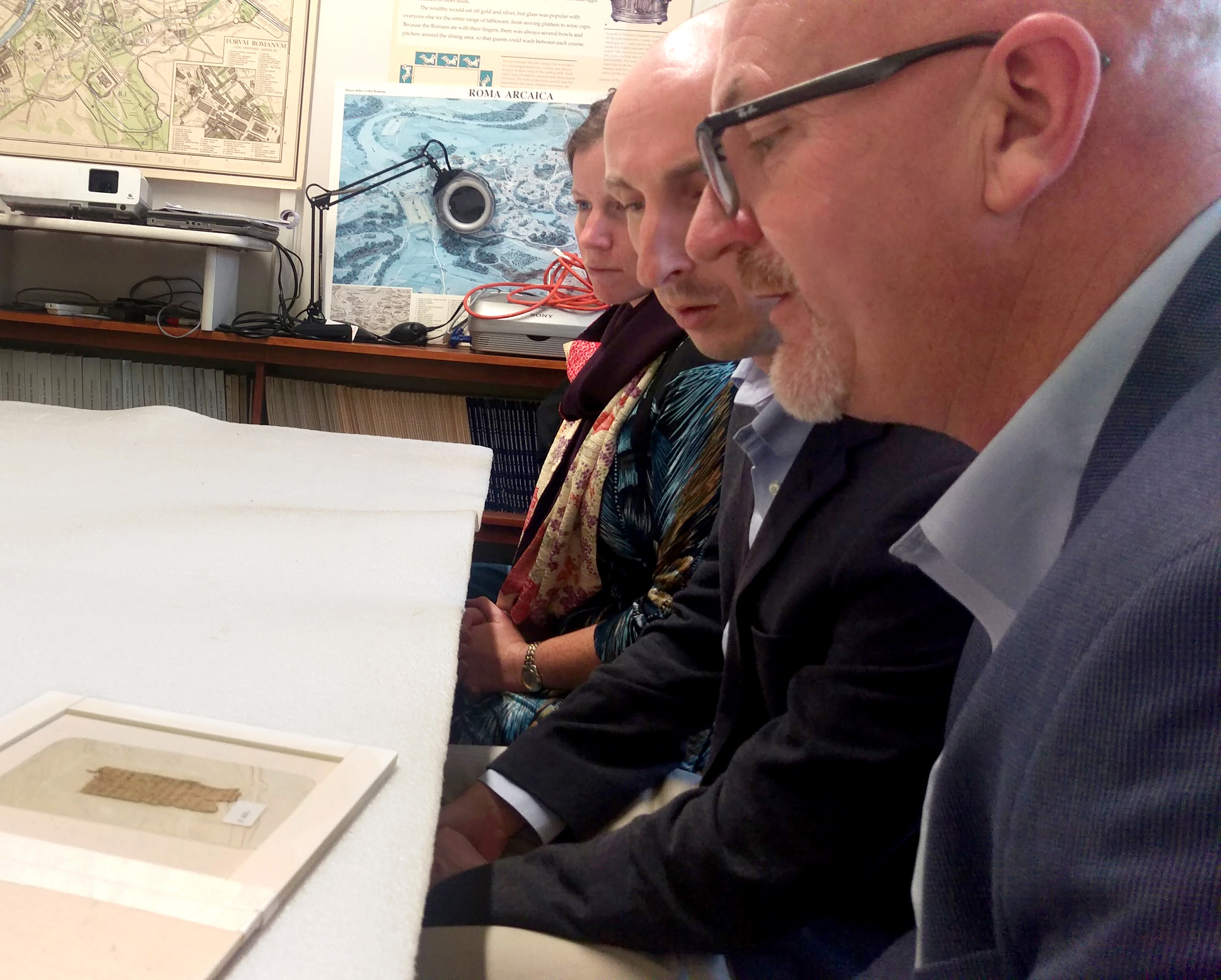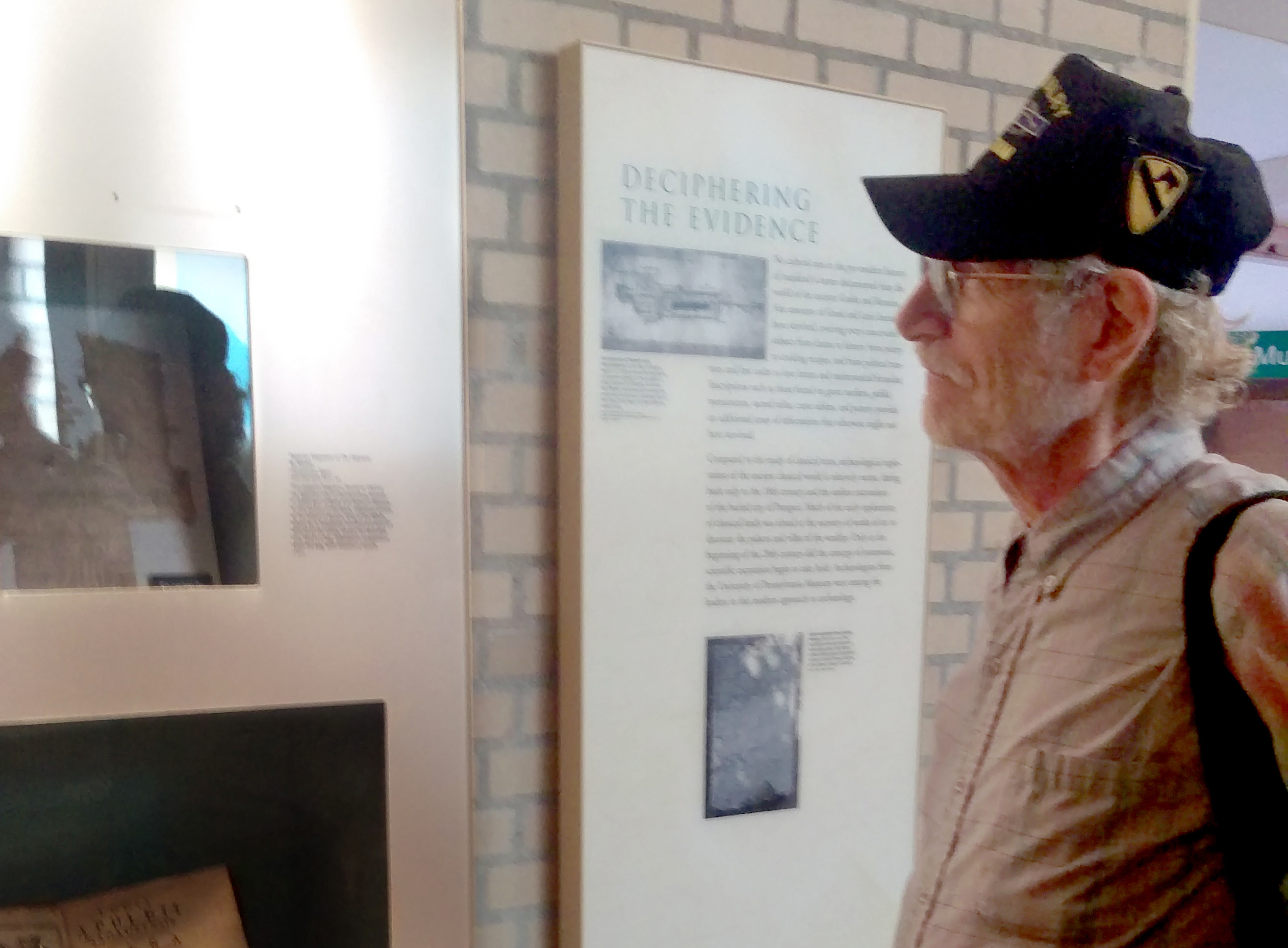When Kimberly “Max” Brown, GR’04, was teaching a Roman history and culture course at the University of the Arts in Philadelphia, she noticed a pattern: a number of veterans had enrolled and were heavily engaged with the curriculum.
“We were talking about Rome, from Julius Caesar to Nero, and a lot of the discussion centered around Roman military history,” says Brown, who received a Ph.D. in Art and Archaeology of the Mediterranean World from Penn. “This was in the wake of September 11th, so there were veterans who were returning from war who had gone through bad battle experiences. There was one student whose father had served, and when the father came back, his behavior was really overwhelming to her. But when we read the Aeneid, she learned about Turnus, a heroic-but-flawed figure, and she started to understand her father more. For me, bells went off.”
After some initial speed bumps, Brown, who has worked at the VA since 2006 and currently serves as co-director of Equity Capacity Building for the VA Center for Health Equity Research and Promotion, got in touch with C. Brian Rose, James B. Pritchard Professor of Archaeology in the Department of Classical Studies, who was one of her professors during her time as a Penn student. Rose helped her establish the group that would eventually become Eternal Soldier, a collective of archaeologists, classicists, historians, clinicians, and veterans working together to present ancient material on war, warriors, combat, and society re-purposed for modern veterans.
That was 2014. This coming February, Eternal Soldier, for which Brown acts as executive director, will turn 10, and during the past decade, the initiative has steadily worked to create unique offerings for veterans. One such program, the reading group Homer and Beyond, is now in its seventh year; it has played a central role in Eternal Soldier’s efforts to use storytelling as a conduit through which participants can share their thoughts and experiences.
Classically Trained
Sheila “Bridget” Murnaghan has spent her career steeped in the Homeric epics and other ancient Greek literature. So when Brown and Rose recruited her to be part of the Eternal Soldier advisory board and someone floated the idea of a Homer reading group, Murnaghan raised her hand. The Homer and Beyond reading group was born.
Discussions in the current iteration, Homer and Beyond: Ancient War Stories on Film, revolve around both ancient texts and modern films, often paired by the conflict on which they’re based. Selections—some well-known, others more obscure—include Troy (2004) and Homer’s The Iliad; Warriors (1979) and Xenophon’s Anabasis; 300 (2006) and Herodotus’ Battle of Thermopylae; and Chi-Raq (2015) and Aristophanes’ Lysistrata.
“First we see the film and then read the ancient text, and I have to say that that order is working really well,” says Murnaghan, Alfred Reginald Allen Memorial Professor of Greek and chair of the Department of Classical Studies. “Everybody’s equally an expert on the films, and they have a lot to say. And then we look back and see how the same story was told in antiquity.”
Murnaghan says that during her time with the group, participants have contributed deep insights into the stories she has studied for so long. “The Odyssey is really about the fantasy that you could go away for 20 years and come home and pick up all the threads of your previous life,” she says. “Odysseus has to overcome various threats in order to do that, and hearing certain veterans say, ‘When I was deployed, all I could think about was home, and I had this fantasy of it being exactly the way it was when I left’—that really was a powerful corroboration.”
The veterans have also opened her up to new perspectives on the narratives. “It’s really interesting to see veterans struggling with Odysseus, who’s a leader who just doesn’t look out for his men the way a modern soldier, or modern commanding officer, is absolutely trained to do,” Murnaghan continues. “One veteran was struggling with the fact that she was really drawn to the Odysseus character. She said, ‘You know, it’s true, he lets all his men drown, and he takes risky actions, but at the end of the day, he didn’t ask his men to do anything he wasn’t willing to do himself.’ And she saw that as a real connection to a value that was tremendously important to her. I just would never have thought in those terms. It was really fascinating.”
The reading group, which previously met in person at the Penn Museum, transitioned to Zoom during the pandemic. This provided an important outlet for participants during a challenging, often isolating, period, says Brown. “The program has done a really good job at helping folks feel included. This has resulted in new friendships, in and out of the program.”
At the center of it all are the stories veterans tell, stories of heart and stories that heal.
Participants in the reading group are extremely diverse, Brown adds. “We’ve had women veterans, veterans of color, and veterans from all the major conflicts since World War II. We’ve had a battalion commander—someone with hundreds of people under their command. They all have very different outlooks and very different memories. There’ve been a few heated moments, but we’ve always managed to avoid any real conflict.”
Because many of the veterans have experienced trauma, Brown and her colleagues always make available a clinical specialist of some sort. “We have veterans who are actively struggling with what happened to them during their service,” she says. “They might have physical impediments or injuries, or they might be struggling with PTSD and combat trauma. But that doesn’t mean that they don’t see our book group as therapeutic—some of them describe it that way.”
Something for Everyone
The Eternal Soldier initiative has created an array of programs over the years, each of which provides participants with unique opportunities for growth. This includes Eternal Warrior Veterans Theater Workshop, a virtual program for Veterans’ Day 2020 in which participants designed and performed dramatic readings; Archaeology Day at Red Bank Battlefield Park; and recently, a panel entitled Leave No Warrior Behind: Battlefield Recovery from Ancient Greece to Black Hawk Down and Beyond.
Leave No Warrior Behind featured Murnaghan discussing the ancient Greek warrior Ajax, who retrieved Achilles’ body from the Trojan War battlefield after he had been slain with an arrow to his heel. Her talk included analysis of an ancient painted vase housed at the Penn Museum, which depicts the act.
“Penn Museum has been awesome supporting this work,” says Brown, who is also a consulting scholar at the museum. “They have a fragment of an early text of The Odyssey dating back to the ancient world, and one time, after we’d had a great session reading the story, they brought out this fragment and we all looked at it. Their openness and willingness to empower the veterans to feel welcome in the building and not intimidated by what’s on display, that, too, is a big part of why we’re so successful.”
Other panelists from Leave No Warrior Behind included Colonel Thomas E. Matthews (USA Retired), one of the commanders of the battle of Black Hawk Down, who recounted swooping in and retrieving soldiers who had been pinned down for 12 hours in Mogadishu, and Captain Jessica E. Stephenson (USA Retired), a helicopter pilot who did combat search-and-rescue missions in Afghanistan. Stephenson also discussed her experience as a woman veteran.
As for what’s next for Eternal Soldier, Brown cites the Veterans History Exchange, a series of public tours of the Penn Museum curated by a diverse team of veterans. This ambitious project, to be released in time for Eternal Soldier’s 10th anniversary in February 2024, is the work of a group of men and women from multiple combat eras—Desert Storm through Afghanistan and Iraq—who performed a variety of roles while on active duty in the military, from support to intelligence to combat. “The tour itineraries join a selection of museum display objects to veteran perspectives on issues such as the homefront, invisible wounds of war, and return to civilian life post-deployment,” says Brown. “At the center of it all are the stories veterans tell, stories of heart and stories that heal.”
Learn more about Eternal Soldier and its programming at eternalsoldier.org/aboutus.
Disclaimer: The contents of this article do not necessarily represent the views of the Department of Veterans Affairs or the U.S. Government.





